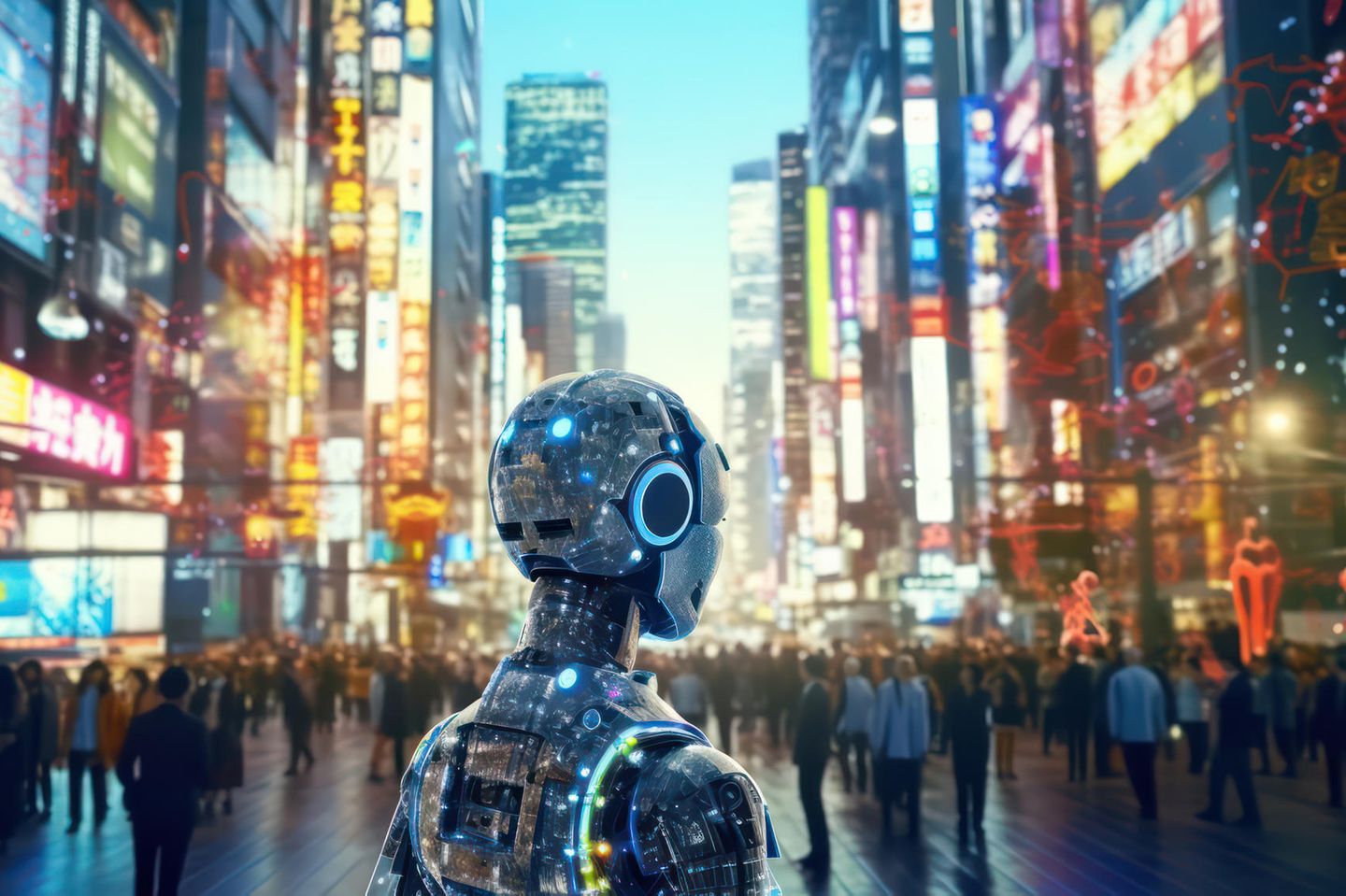AI in everyday life
This is how artificial intelligence makes our lives easier
© Graphics.Parasite / Adobe Stock
AI has not only become an integral part of our everyday lives since ChatGPT. We show where artificial intelligence simplifies our lives.
Artificial Intelligence, or AI for short, has become a veritable buzzword in recent months. A variety of emotions are circulating in a wide variety of areas, especially in relation to the ChatGPT bot: Some feel childlike anticipation and excitement about the immense developments that are already a reality or still lie ahead of us, others look at the job market with concern and skepticism the inevitable changes that the use of artificial intelligence can mean for some professions.
But whether we look at the topic with confidence or fear – the fact is that AI has long since found its way into all of our lives and everyday lives. BRIGITTE presents some areas in which AI is already making our lives easier today.
Smart homes have long been a reality
When we talk to the Google Assistant Siri or Alexa, we are not talking to a nice person in our iPhone or Amazon’s Echo, but to an artificial intelligence that some experience as a “virtual friend.” It is now so well developed and networked with the devices in our house that we can turn off the lights in the adjacent room, adjust the room temperature or turn on our favorite song – all with just a few words.
Smart refrigerators have also been in use for years, taking photos of their interior, which then end up on your cell phone via an app and make shopping lists a thing of the past – after all, you can see exactly which groceries you still have at home and which you don’t.
AIs know your preferences
Have you ever wondered how “the internet” knows which brand of shoes you particularly like or that you are currently looking for a new toothbrush? No matter whether on social media or streaming platforms: tailored advertising is also created thanks to AI. The algorithms used deliver personalized content and recommendations based on your search queries and the pages you regularly visit.
Advertising that doesn’t repel you because it’s irrelevant to you, but shows you exactly the product that you really want? A dream come true for companies – and one that is becoming increasingly clear. With every passing day, AIs can predict users’ interests more precisely – by recognizing patterns and connections.
There are already recommendations that suggest films and series (Amazon Prime, Disney Plus, Netflix) or music (Spotify) that we might like – and are increasingly hitting the mark for many people. AIs analyze our listening and viewing patterns, which genres we particularly like to consume and sometimes how we evaluate them. Most platforms of online retailers such as Amazon or eBay work according to the same principle.
Health is AI-controlled
But AI also plays a particularly important role far away from your own four walls and consumption – for example in healthcare. AI-driven diagnostic tools provide increasingly accurate medical diagnoses, enabling early disease detection and treatment. Thanks to the processing of enormous amounts of medical data in real time, AIs provide medical staff with valuable information about their patients, which has a positive impact on treatments and saves employees a lot of time.
Emails are error-free and secure – thanks to AI
Many people write emails every day in their everyday work. AI-based tools help write error-free texts by capturing and checking the content. Spam filters, which are intended to keep harmful emails away from us, are also based on AI technology, filter the emails for dubious content and keep them out of the regular inbox. Antivirus software also uses machine learning (what AIs are built on) to protect us.
Even the way to work is supported by AI
Apps like Google Maps, Apple Maps and Co. no longer just show the route to work. Thanks to AI, traffic and weather are also monitored in order to predict traffic jams or heavy rain in real time. Self-driving cars (i.e. those controlled by AI) are no longer a vision of the future; they are becoming more and more widespread.
Sources used: medium.com, nytimes.com, deinkuechenplaner.de, forbes.com
